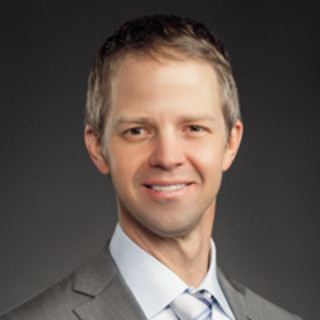
A few years after I started practice, I attended my first continuing education conference. It was in a nice hotel near the beach, so I brought my family. We ate breakfast together and then my wife and kids went off to play and I went into the conference hall, picked up my plastic bag of pre-printed materials, poured a cup of coffee, and reviewed the lecture schedule.
About an hour later I walked out of the dark room yawning into the daylight. I was staring into the sunlight considering my boredom when a friend came by, and said, “I just don’t feel like I’m learning anything here.” I felt exactly the same way.
Just then I looked across out onto the beach and saw my son playing with some older kids. They were teaching him how to build a sandcastle. He was learning, and I was not.
I crept quietly back into the conference room. In the back corner I poured another cup of the slightly bitter and burnt coffee into the tiny paper cup and took out my hotel stationary.
Most of us started a formal education at a young age, and most of us were good students in a traditional sense. The problem is that we grew up, and our approach to education never did. Adult learning is not the same as childhood learning.
Here are a couple ways the two differ:
Children are a blank slate. You can pour abstract information in with the pretense that it may someday become useful. Because it is all novel, it is all potentially interesting. Adults, especially physicians, have been strongly shaped by their clinical experience. As a result, they seek to connect new knowledge with what they already know. Abstract information without a specific correlation to a practical problem is boring.
As trainees, we learned like children. We had mentors who, like parents, guided our thinking and helped us correct our mistakes. We had senior and chief residents who, like older children, could teach us new things, but who were not as intimidating as mentors. We also had peers with whom we could collaborate and play with little risk or fear. We learned in different ways from each different level in the hierarchy. As practicing physicians, we are too often alone on our islands, shepherds of far ranging flocks in a vast wilderness.
Adult educational isolation breeds a fear of failure, or the appearance of failure when we do interact with our peers. Because we are alone, steeped in our own experience, we cultivate the sine qua non of isolationism — a fear and perception of outsiders as inherently wrong. We bring our preconceived notions with us to the educational table and they inhibit learning.
Back in the conference room I was sketching out what I thought might be another way.
Physicians need to share their existing knowledge and experience. So each participant brings their own lecture and an example case from their practice. This creates a shared sense of experience when someone else recognizes a similar case from their own practice. Shared experience fosters camaraderie and breaks down the sense of isolation.
Like good writing, good learning is specific, and so each year the topic is narrowed to a single focus within a broader topic. Not just sports medicine, not just knee surgery, but only surgical patellofemoral knee problems for an entire day. Then each invited member of the panel speaks to a subtopic such as instability or arthritis. Each panel member becomes a mini-expert because the field is so narrowed that the focus can be laser sharp.
Physicians need not just detailed but also practical information. With patient consent or blinding, presenters use videos of the patients' own words, videos of the physical exam, and pictures or videos of the surgical procedure. This brings the clinic to the classroom in a real and immediate way.
Doctors have a delicate pride and desire for respect. Physicians who attend as a participant the first year and participate can be invited back as faculty panel members the very next year. Participants are awarded for openness and participation more than being an NIH-funded researcher or chair of an academic department. This approach caters to a sense of professional accomplishment and achievement.
Like the children on the beach building sandcastles, adults still learn through collaboration and reciprocity. Each presenter can be questioned by anyone else on the panel at any time. The presentation is a template but the questions can venture from the topic into other areas forcing the presenter to adapt and evolve with the panel. This process can lead to some interesting looking sand castles.
Whether the topic at hand is dealt with directly is irrelevant. Lively discussion and heated debate are more interesting. Adult learning is achieved within controversy, even without consensus.
At the conclusion of the course each panelist presents their most difficult case from the preceding year. Everyone who practices medicine must confront failure. Frankly, we learn more from failures than from successes. Vulnerability is at the core of meaningful human relationships and there is no reason this should not apply to professional relationships as well. This is the trust fall at the end of the conference.
That course outline scribbled on that hotel stationary eventually became a reality. Despite all the work that goes into it, I look forward to it every summer.
In our part of the world, when the aspen leaves are green the Basque sheepherders take their flocks into the mountains. When I think of that conference I think of their proverb: “When two or three shepherds are gathered together it can only mean one thing – a dead sheep.”
Brian Gilmer, MD is an orthopedic surgeon in Mammoth Lakes, CA and chairman of the annual Mammoth Sports Course www.mammothsportscourse.com. He is a 2018–2019 Doximity Author.






